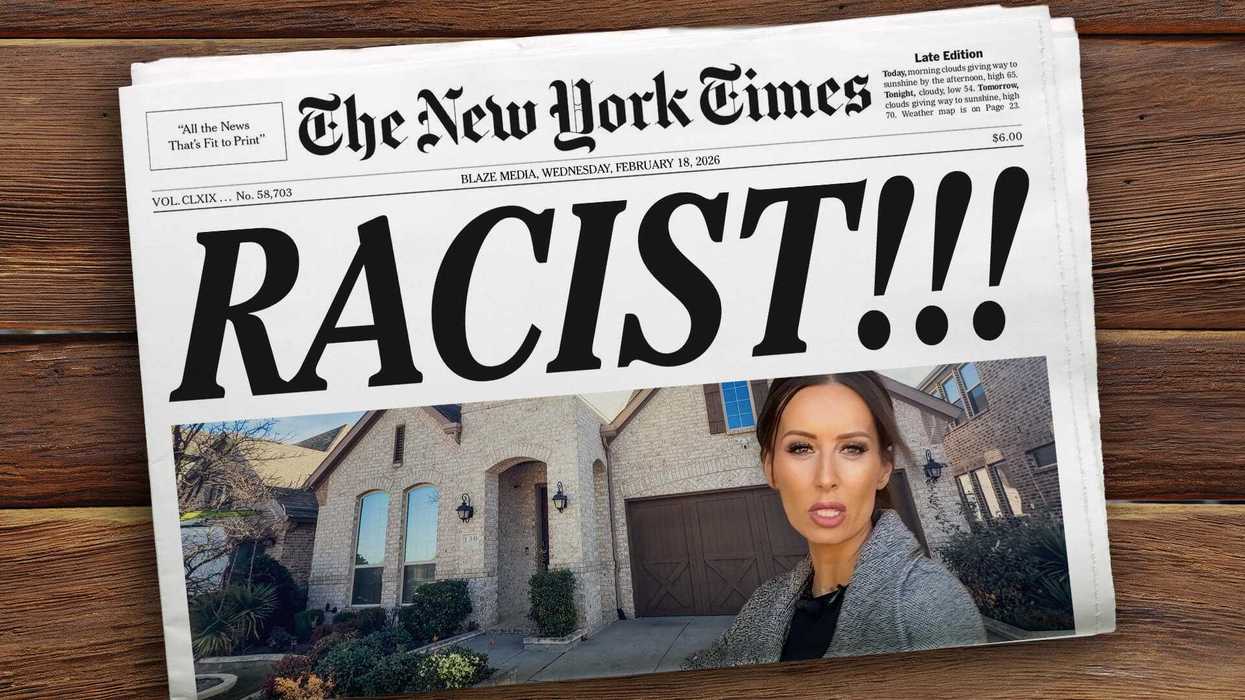© 2026 Blaze Media LLC. All rights reserved.
"The whole study was bogus."
Remember that study from the University of Maryland and WorldPublicOpinion.org saying Fox News viewers are the most "misinformed" audience? It seems that was misinformation.
Competitive Enterprise Institute Communications Director, and licensed lawyer, Lee Doren has just released a short video expose showing that the study is severely flawed.
"After looking at the supposed 'myths' that Fox News watchers believe, I quickly realized that something was wrong with the study," Doren writes in the video's YouTube introduction. "As a result, I read the study very carefully and realized that the whole study was bogus."
He says the study does "not have data to support its conclusions," and goes as far as to say it "may simply demonstrate that Fox News viewers are more informed than the researchers."
And just in case Doren's video isn't enough, it's important to note (as we did in our original piece) that the WorldPublicOpinion.org website includes the Tides Foundation as one of its major sponsors. That group is directly connected to George Soros.
The study was also debunked by columnist David Zurawik of the Baltimore Sun. As he points out, the study admits in its own pages that the term "misinformed" is relative:
Here is the big, fat wonking problem with the survey: How do you define "misinformed" and "informed"?The researchers seemed to understand this, and to their credit, they acknowledge it at the top of their findings. Bu they choose to deal with it only in what they term a "note."
Here is the key passage of their note: "A study of misinformation raises the somewhat delicate question of what is true....In the course of this study, to identify “misinformation” among voters, we used as reference points the conclusions of key government agencies that are run by professional experts and have a strong reputation for being immune to partisan influences...."
Deciding which experts and/or agencies do or don't have a "strong reputation for being immune to partisan influences" seems like a highly subjective business to me -- as talk of reputation always is.
And when you cut through such non-scientific talk, what you have for the definition of a respondent who is considered "informed" is essentially someone who agrees with the conclusions of experts in government agencies. When specific questions in the survey are framed around facts, like who was president when a certain piece of legislation passed, you can say someone is misinformed. But that is not always the case. And that is where one problem resides.
So, presumably, if you were to disagree with such top economic experts in government as Timothy Geithner or Larry Summers, you would be labeled as misinformed. If you dared to disagree with those experts in government who say that the Wall Street bailout was absolutely necessary and that the takeover of GM was desperately needed and that healthcare reform will actually be good for the economy -- you would be labeled as MISINFORMED.
Fox's original response to the study was to make fun of the school by pointing out that "the latest Princeton Review ranked the University of Maryland among the top schools for having ‘Students Who Study The Least’ and being the ‘Best Party School.'"
Considering what's been uncovered, they may want to hit back with something much harder.
Want to leave a tip?
We answer to you. Help keep our content free of advertisers and big tech censorship by leaving a tip today.
Want to join the conversation?
Already a subscriber?
Jonathon M. Seidl is a former managing editor of Blaze News and a best-selling author and speaker. His next book, “Confessions of a Christian Alcoholic,” will be released on October 7, 2025.
Jonathon M. Seidl
Jonathon M. Seidl is a former managing editor of Blaze News and a best-selling author and speaker. His next book, “Confessions of a Christian Alcoholic,” will be released on October 7, 2025.
more stories
Sign up for the Blaze newsletter
By signing up, you agree to our Privacy Policy and Terms of Use, and agree to receive content that may sometimes include advertisements. You may opt out at any time.
Related Content
© 2026 Blaze Media LLC. All rights reserved.
Get the stories that matter most delivered directly to your inbox.
By signing up, you agree to our Privacy Policy and Terms of Use, and agree to receive content that may sometimes include advertisements. You may opt out at any time.






